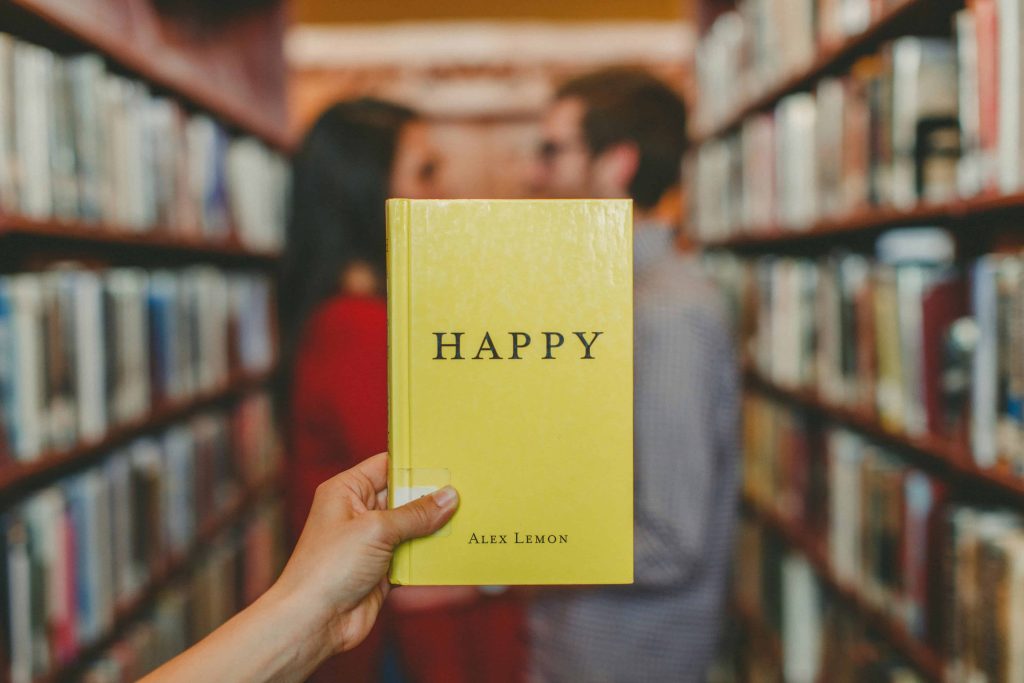Betina Lobo – Redefining Portuguese Poetry

The Enduring Influence of Love in Poetry in 2024

Love as a Central Theme in Poetry
Love has been a timeless and universal subject that has captivated poets for centuries. As one of the most profound human emotions, love transcends cultural, historical, and geographical boundaries, making it an enduring and relatable theme in poetic works across the globe. Whether it’s the passionate flames of romantic love, the empowering journey of self-love, or the comforting embrace of familial and platonic bonds, love serves as a rich source of inspiration that shapes the form, style, and substance of poetry. This exploration delves into the multifaceted representations of love in poetry, examining how this powerful emotion influences poetic expression and continues to resonate with readers today.
Romantic Love
Definition and Historical Context of Romantic Love
Romantic love refers to the deep emotional, and often physical, connection between individuals that encompasses passion, intimacy, and commitment. This form of love has been a central theme in poetry since antiquity, evolving through various cultural and historical contexts.
In ancient civilizations like Greece and Rome, romantic love was often depicted through myths and legends, portraying gods and mortals entwined in passionate and tumultuous relationships. For instance, the story of Orpheus and Eurydice reflects the depths and tragedies associated with profound love.
During the medieval period, the concept of courtly love emerged, characterized by chivalric and often unattainable affection, which greatly influenced the troubadour poetry of the time. Poets like Dante Alighieri and Petrarch idealized their muses, infusing their works with themes of unrequited love and spiritual adoration.
The Romantic era of the 18th and 19th centuries brought a renewed focus on individual emotion and natural beauty, with poets such as Lord Byron, Percy Bysshe Shelley, and John Keats exploring intense and passionate expressions of love that defied societal conventions.
In contemporary poetry, romantic love continues to be explored in diverse and complex ways, reflecting modern understandings of relationships, sexuality, and emotional connectivity.
Exploration of Romantic Love’s Influence on Poetic Form, Style, and Imagery
Romantic love profoundly shapes the form and stylistic choices of poets, influencing everything from structure to linguistic expression:
- Form: Sonnets have been a popular form for expressing romantic love, providing a structured yet flexible format to explore deep emotions. Free verse poetry allows for a more spontaneous and personal expression, mirroring the unpredictable nature of love itself.
- Style: Poets often employ lyrical and emotive language to convey the intensity of romantic feelings. The use of first-person perspective creates intimacy, allowing readers to connect deeply with the poet’s experiences and emotions.
- Imagery: Vivid and sensory imagery is prevalent in love poetry, with poets drawing on natural elements like flowers, stars, and the changing seasons to symbolize beauty, passion, and the ebb and flow of romantic relationships. Metaphors and similes are extensively used to compare love to profound and enduring phenomena, enhancing the emotional impact of the poem.
Analysis of Common Tropes and Metaphors Associated with Romantic Love in Poetry
Several enduring tropes and metaphors recur in romantic poetry, serving as powerful tools to express the multifaceted nature of love:
- The Lover as a Pilgrim: This metaphor depicts the lover’s journey as a spiritual quest, seeking fulfillment and enlightenment through love. It emphasizes devotion and the transformative power of romantic connections. John Donne’s poems often explore this theme, portraying love as a sacred and enlightening journey.
- The Beloved as a Goddess: Elevating the beloved to divine status underscores their perceived perfection and the awe they inspire in the lover. This trope is evident in works like Petrarch’s sonnets, where Laura is idealized and worshipped, embodying unattainable beauty and virtue.
- Love as a Force of Nature: Comparing love to natural phenomena like storms, oceans, or fire conveys its overwhelming and uncontrollable aspects. This metaphor illustrates both the creative and destructive potentials of love, as seen in Elizabeth Barrett Browning’s poetry, which often blends natural imagery with expressions of deep affection.
- Heart and Soul Connections: Poets frequently reference the heart and soul to signify profound emotional and spiritual bonds. This trope emphasizes the depth and sincerity of romantic feelings, highlighting love’s ability to touch the core of human existence.
These tropes and metaphors not only enrich the emotional texture of poetry but also create universal symbols that resonate across different cultures and eras.

Self-Love
Definition and Importance of Self-Love
Self-love is the practice of appreciating and valuing oneself, encompassing self-compassion, self-acceptance, and personal growth. It involves recognizing one’s worth and embracing both strengths and imperfections. In poetry, self-love serves as a powerful theme that promotes introspection and empowers individuals to find inner peace and fulfillment.
The importance of self-love lies in its ability to foster resilience, confidence, and emotional well-being. It enables individuals to form healthier relationships, set boundaries, and pursue their aspirations authentically. In a broader societal context, self-love challenges norms and narratives that perpetuate self-doubt and inadequacy, advocating for self-respect and personal empowerment.
Examination of Self-Love as a Theme in Poetry, Including Its Role in Personal Growth and Identity Formation
Poetry exploring self-love delves into the journey of understanding and embracing oneself. This theme often intersects with experiences of overcoming adversity, healing from past traumas, and discovering one’s true identity.
- Personal Growth: Poems centered on self-love frequently depict the process of evolving from self-criticism to self-acceptance. They highlight the struggles and triumphs involved in learning to love oneself, emphasizing resilience and inner strength. Maya Angelou’s “Still I Rise” exemplifies this, portraying an unwavering sense of self-worth in the face of oppression and hardship.
- Identity Formation: Self-love poetry often explores themes of self-discovery and authenticity. It encourages embracing one’s unique qualities and rejecting external pressures to conform. Langston Hughes’ works, for instance, celebrate African American identity and pride, asserting self-love as a means of cultural and personal affirmation.
- Healing and Empowerment: Such poetry serves as a medium for processing and overcoming emotional pain, promoting healing through self-compassion. It empowers readers to confront and release negative self-perceptions, fostering a sense of wholeness and well-being. Rupi Kaur’s contemporary poems often touch upon these aspects, offering poignant reflections on self-care and inner healing.
Analysis of How Self-Love Can Be Expressed in Poetic Works
Poets utilize various techniques and styles to convey themes of self-love:
- Introspection: Deep, reflective language allows poets to delve into their inner worlds, examining thoughts, feelings, and experiences that shape their sense of self. This approach invites readers to engage in their own self-reflection and fosters a shared journey toward self-understanding.
- Affirmations: The use of declarative and empowering statements reinforces positive self-perceptions and encourages self-belief. These affirmations can serve as mantras that inspire confidence and reinforce the message of self-worth.
- Celebration of Individuality: Poets often celebrate unique personal traits and experiences, challenging societal standards and embracing diversity. This celebration promotes acceptance and pride in one’s identity, as seen in Walt Whitman’s “Song of Myself,” which exuberantly honors the self in all its facets.
- Symbolism and Metaphor: Symbols such as mirrors, journeys, and natural elements like blooming flowers or rising suns are employed to represent self-discovery, growth, and renewal. These metaphors enrich the thematic depth and provide relatable imagery that resonates with readers’ own experiences.
Through these expressive methods, poetry becomes a transformative tool that not only conveys the significance of self-love but also inspires and empowers individuals to embark on their own journeys toward self-acceptance and fulfillment.

Other Forms of Love
Brief Exploration of Additional Forms of Love in Poetry
Beyond romantic and self-love, poetry encompasses a wide spectrum of love forms that reflect the diverse nature of human connections:
- Familial Love: This form of love centers on the bonds between family members, capturing the complexities, comforts, and conflicts inherent in familial relationships. Poets explore themes of heritage, parental affection, sibling relationships, and generational ties. Seamus Heaney’s works often delve into family dynamics and the profound influence of ancestry and upbringing.
- Platonic Love: Platonic love celebrates deep, non-romantic connections between individuals, emphasizing companionship, mutual respect, and understanding. Poetry on this theme highlights the significance of friendship and community in providing support and enriching life experiences. Emily Dickinson’s poems frequently touch upon the nuances of friendship and emotional intimacy.
- Divine Love: This refers to the spiritual and transcendent love between humans and the divine or a higher power. Poets express themes of faith, devotion, and spiritual longing, exploring the search for meaning and connection beyond the physical realm. The works of Rumi, a 13th-century Persian poet, profoundly illustrate divine love through mystical and ecstatic verses.
- Universal Love: This encompasses a broad, all-encompassing affection and compassion for humanity and the world at large. Poets advocate for empathy, unity, and altruism, often addressing social issues and promoting ideals of peace and understanding. Pablo Neruda’s poetry frequently embodies universal love, celebrating human experiences and natural beauty.
Discussion of How These Forms of Love Can Intersect with Romantic and Self-Love, Creating Complex and Nuanced Poetic Expressions
The interplay between different forms of love enriches poetic expression by adding layers of complexity and depth:
- Romantic and Familial Love: Poets may explore how family backgrounds and relationships influence romantic connections, shedding light on patterns, expectations, and emotional baggage carried into romantic partnerships. Additionally, themes of starting a family and the intertwining of romantic and familial love are common, highlighting the evolution and expansion of love.
- Self-Love and Platonic Love: The relationship between self-love and friendships is often examined, demonstrating how strong platonic bonds can support and enhance an individual’s journey toward self-acceptance. Conversely, a healthy sense of self-love can lead to more fulfilling and authentic friendships.
- Romantic and Divine Love: Some poetic works draw parallels between romantic passion and spiritual devotion, blurring the lines between earthly and transcendent experiences of love. This fusion can create powerful and intense expressions of longing and unity, as seen in the metaphysical poetry of John Donne.
- Self-Love and Divine Love: Poets may depict self-love as a reflection of divine love, suggesting that understanding and valuing oneself is connected to recognizing and embracing a higher spiritual truth. This intersection promotes themes of inner peace, purpose, and enlightenment.
By weaving together various forms of love, poets create multifaceted narratives that reflect the intricate and interconnected nature of human emotions and relationships. This nuanced approach allows for a more comprehensive exploration of love’s impact on the human experience, resonating deeply with diverse audiences.

The Impact of Love on Poetry
Analysis of How Love Can Inspire Poetic Creativity and Emotional Depth
Love serves as a profound catalyst for poetic creativity, providing an abundant source of inspiration that fuels expressive and evocative works:
- Emotional Resonance: The intense emotions associated with love enable poets to tap into deep wells of feeling, resulting in poetry that resonates powerfully with readers. Love’s ability to evoke joy, sorrow, longing, and ecstasy offers a rich palette of emotions for poetic exploration.
- Universal Appeal: As a fundamental human experience, love allows poets to connect with a wide audience. The shared understanding and experiences of love make poetry on this theme accessible and relatable, fostering empathy and emotional connection between the poet and the reader.
- Artistic Expression: Love’s complexity and multifaceted nature challenge poets to experiment with language, form, and imagery, pushing the boundaries of traditional poetic expression. This drive leads to innovative and diverse poetic styles that capture the essence of love in unique and compelling ways.
- Personal Reflection: Writing about love provides poets with a means to process and articulate their personal experiences and emotions. This introspection contributes to the authenticity and sincerity of their work, enhancing its emotional depth and impact.
Discussion of the Transformative Power of Love in Shaping Poetic Perspectives and Worldviews
Love profoundly influences not only the content of poetry but also the poet’s perspective and understanding of the world:
- Empathy and Compassion: Experiences of love can deepen a poet’s empathy, allowing them to explore and express a broader range of human emotions and experiences. This heightened sensitivity enriches their work and fosters a more inclusive and understanding worldview.
- Personal Growth: Love often acts as a catalyst for personal transformation, challenging individuals to confront their vulnerabilities, strengths, and values. Poets capture these transformative journeys in their work, offering insights into the evolving nature of identity and relationships.
- Challenging Social Norms: Love can inspire poets to question and critique societal expectations and injustices. Through their work, poets may advocate for more inclusive and equitable understandings of love, addressing issues such as gender roles, sexuality, and cultural biases.
- Spiritual and Philosophical Exploration: Love’s profound impact on human existence prompts poets to delve into deeper spiritual and philosophical questions about purpose, connection, and the nature of reality. This exploration adds layers of meaning and contemplation to their poetry.
By shaping the poet’s lens through which they view and interpret the world, love enriches poetic expression and contributes to a diverse and profound body of work that continues to inspire and move audiences.
Examination of How Love Can Be Used to Explore Social and Political Issues Through Poetry
Poetry often utilizes the theme of love to address and critique various social and political issues:
- Social Justice and Equality: Poets harness the universal language of love to advocate for social change, highlighting issues such as racism, sexism, and discrimination. Love is portrayed as a unifying force that transcends divisions and promotes understanding and solidarity. Audre Lorde’s poetry, for instance, uses love as a framework to discuss and challenge systemic injustices.
- War and Peace: Love serves as a powerful contrast to the destruction and hatred associated with conflict. Poets employ themes of love to underscore the human cost of war and to advocate for peace and reconciliation. Wilfred Owen’s war poetry poignantly juxtaposes love and loss to convey the tragedies of warfare.
- Cultural Identity and Heritage: Love for one’s culture and heritage is a recurring theme that poets use to explore and affirm cultural identity, especially in the face of oppression or assimilation. This form of love celebrates diversity and preserves cultural narratives and traditions, as seen in the works of poets like Langston Hughes and Joy Harjo.
- Environmental Concerns: Love for nature and the environment is a theme through which poets address ecological issues and advocate for conservation. By expressing deep affection and respect for the natural world, poets raise awareness about environmental degradation and inspire action toward sustainability. Mary Oliver’s poetry often reflects this profound connection and reverence for nature.
Through these explorations, love becomes a versatile and powerful motif that enables poets to engage with and comment on pressing social and political matters, making their work not only emotionally resonant but also socially relevant and impactful.

Recent Posts
Categories
- Art Poetry Connection
- Emotional Poetry Insight
- Imaginative Poetic Expression
- Love in Poetry
- Modern Poetic Trends
- Nature-Inspired Poetry
- Personal Growth Poetry
- Poetic Emotional Impact
- Poetic Journey
- Poetic Memory Exploration
- Poetry for Personal Growth
- Poetry Human Experience
- Poetry Therapy Benefits
- Poetry's Reflective Power
- Poetry’s Social Impact
- Reflective Poetic Techniques
- Spiritual Poetry Exploration
- Traditions
Conclusion
Love, in its myriad forms, remains an enduring and central theme in poetry, offering endless avenues for emotional expression, artistic innovation, and profound reflection. From the passionate verses of romantic love to the empowering declarations of self-love and the encompassing warmth of familial and universal love, poets have continually drawn upon this profound emotion to create works that resonate across time and cultures. Love’s influence extends beyond personal expression, serving as a powerful lens through which poets examine and challenge social and political landscapes, advocate for change, and explore the deepest facets of human existence. The enduring significance of love in poetry underscores its universal relevance and its unparalleled ability to connect, heal, and inspire. As society evolves, so too will the poetic explorations of love, continuing to enrich the literary world and touch the hearts of readers for generations to come.
Key Takeaways
- Timeless Theme: Love is a central and enduring theme in poetry, transcending cultural, historical, and geographical boundaries.
- Variety of Expressions: Poetic representations of love encompass romantic, self-love, familial, platonic, divine, and universal love, each offering unique insights into human emotions and relationships.
- Romantic Love: Romantic love in poetry is historically rich, influencing form, style, and imagery, with common tropes like the lover as a pilgrim and love as a force of nature.
- Self-Love: Poetry exploring self-love promotes introspection, personal growth, and identity formation, often utilizing introspective language, affirmations, and symbolism.
- Intersections of Love: The interplay between different forms of love—romantic, familial, platonic, and divine—adds complexity and depth to poetic expressions, reflecting the intricate nature of human connections.
- Creative Catalyst: Love serves as a profound catalyst for poetic creativity, emotional depth, and artistic innovation, allowing poets to connect with a wide audience.
- Transformative Power: Love shapes poetic perspectives, fostering empathy, personal growth, and the questioning of social norms, while also serving as a lens for spiritual and philosophical exploration.
- Social and Political Commentary: Poets often use love to address and critique social and political issues, including social justice, war, cultural identity, and environmental concerns, making poetry both emotionally resonant and socially relevant.
Frequently Asked Questions
Why is love such a central theme in poetry?
Love is a central theme in poetry because it is a universal emotion that resonates deeply with people across cultures and time periods. Its multifaceted nature—encompassing romantic, self, familial, and universal love—provides endless inspiration, allowing poets to explore profound human experiences and emotions.
How does romantic love influence the form and style of poetry?
Romantic love influences poetry by shaping its form, such as through the use of sonnets and free verse, and by driving stylistic choices like lyrical language and vivid imagery. Poets often use metaphors and first-person perspectives to convey the intensity of romantic emotions, creating a deeply personal and impactful experience for readers.
How do poets use love to address social and political issues?
Poets use love as a powerful motif to explore social and political issues by connecting it to themes like social justice, cultural identity, and environmental concerns. Love is portrayed as a force for unity, empathy, and change, allowing poets to critique societal norms and advocate for a more compassionate and equitable world.
Curious about how poetry can mirror your own emotional journey? This article delves into the transformative power of words and feelings.
Quick Links
Newsletter
Be the first to know about upcoming events, promotions, and industry news by subscribing to our newsletter today!